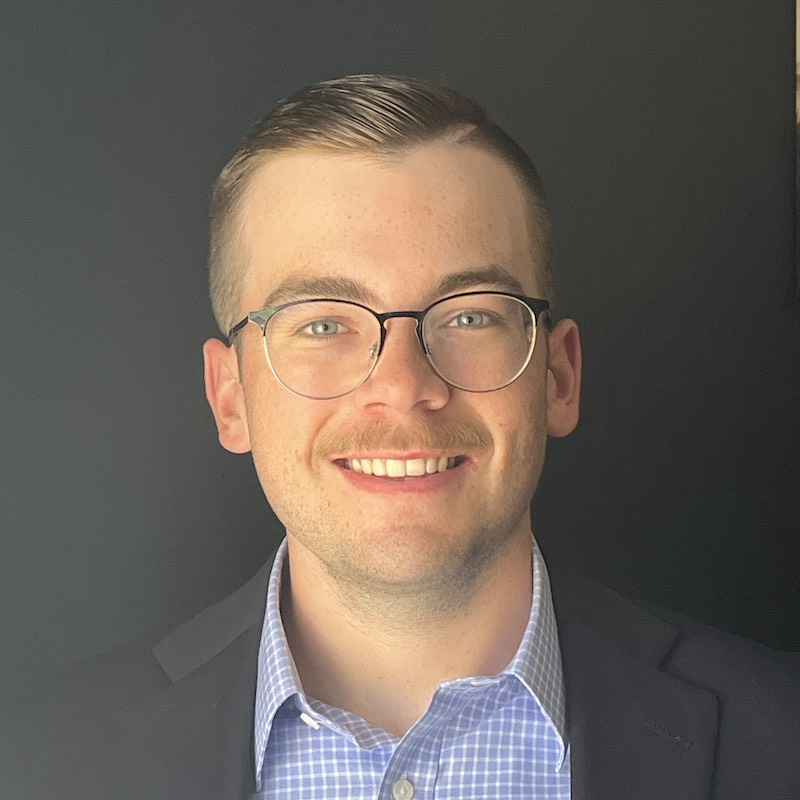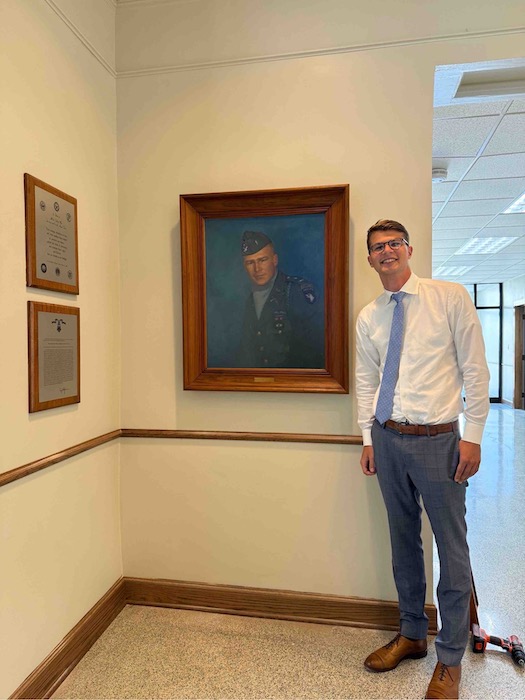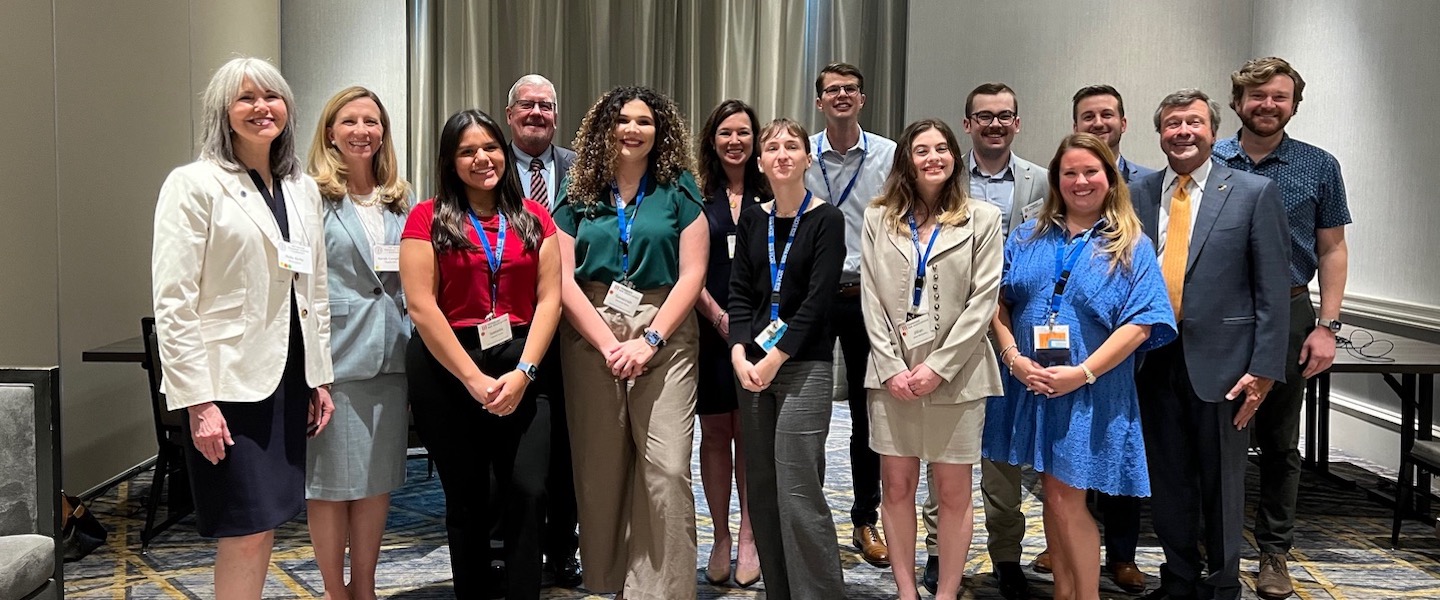Immersive legal training in rural courtrooms helps address attorney shortage
Clark Hill, a native of rural Middle Tennessee, and Harry Crane, who grew up in Detroit, Michigan, might seem like the classic “country mouse and city mouse” comparison, but working under rural area judges revealed a shared appreciation for small-town courts.
The two rising 2Ls from Belmont University College of Law were among the first to participate in a new initiative through the Tennessee Bar Association’s Young Lawyers Division this summer. The Rural Judicial Fellowship was created to address the state’s shortage of rural attorneys while giving law students an immersive experience in rural Tennessee courtrooms.
In many rural communities, a mismatch exists between need and access. Nearly 20% of the country’s population lives in rural areas, yet some of these communities have only one or no practicing lawyers.
Each student walked away from their six-week fellowship with valuable mentorship, broad legal experience and a deeper professional confidence.
Meeting the Need for Rural Legal Representation
The fellowship — launched in 2025 and co-created by Belmont’s Director of Career and Professional Development Alix Rogers — places rising 2L, 3L and 4L law students in judicial clerkships across underserved counties.
Recognizing the shortage of young attorneys entering rural practice, Rogers who serves as the Middle Tennessee Governor of the TBA Young Lawyers Division and YLD Secretary Judge Zachary Walden collaborated to establish the fellowship.
“There's so much reward to a small-town practice,” Rogers said. “Lawyers are pillars of the community. We really felt that if they spent time in rural communities as a student, it would be much easier for them to picture their career out there.”
The Rural Judicial Fellowship not only introduced students to the urgent need for new attorneys in underserved rural areas but also gave them a firsthand look at legal practice in these communities.
As a Middle Tennessee native, the mission resonated with Hill immediately. Working under Judge Caleb Bayless in the 22nd Judicial District, he witnessed the distinctive challenges facing rural residents and the meaningful role attorneys play in addressing them.
“Exposure to the rural way of practicing law is incredibly inspiring because you're able to truly engage with your clients after you mitigate their issues,” he said. “It's a way to directly see your impact as a legal advocate for your clients, both inside and outside of court and hopefully get a perspective on how your work has helped them in their life.”

“Exposure to the rural way of practicing law is incredibly inspiring because you're able to truly engage with your clients after you mitigate their issues.
It's a way to directly see your impact as a legal advocate for your clients, both inside and outside of court and hopefully get a perspective on how your work has helped them in their life.”
- Clark Hill, 2L
Immersive Courtroom Experience
Crane, who clerked in Dyersburg with Judge Mark Hayes, recalled the value of learning how judges weigh legal arguments.
“Judge Hayes helped my confidence in being able to form a legal opinion by challenging me to say what I thought,” Crane said. “It can be kind of difficult to form an opinion and feel confident about putting yourself out there, especially in your first year.”
In addition to shadowing Hayes, Crane was able to work on writing opinions.
“He didn't always agree with me, but oftentimes he did,” Crane added. “When a judge agrees with your opinion or you change the judge's opinion, that's a big boost of confidence.”
Hill noted the legal versatility required for encountering a broad range of cases. “In Nashville, judges often specialize, but in rural Tennessee, you see it all: criminal trials, divorces, property disputes,” he explained. “As a student, it was invaluable to test myself across different areas of law.”

Community Connections Beyond the Courtroom
In Dyersburg, Crane was not only welcomed into the Dyersburg community, but he also left his mark on it. His service project honored Vietnam hometown hero Jimmy Gardner with a courthouse display in his memory, creating a lasting tribute that reflects the town’s deep respect for service and veterans.
“The building itself is one of the oldest courthouses in the state and it’s a crown jewel of the city,” Crane explained. “I knew the town values service and honors their veterans so now the display is a spot where everybody sees it when they walk into the courthouse as an inspiration.”
Harry Crane, pictured right, poses beside a portrait of Jimmy Gardner in the historic Dyersburg courthouse.
Practice-Ready Training
Both students credited Belmont Law for equipping them with enough training to step confidently into their fellowships and take their classroom learning to the next level.
Hill noted that the classroom can sometimes feel detached from reality. "The fellowship turned the cases we read in class into real people with real issues and allowed me to develop a sense of compassion for those I read about and a greater sense of understanding.”
Inspiring Future Careers
While their paths into the program were different, with Crane seeking a new pace after growing up in Detroit, and Hill returning home to Middle Tennessee, both students left affirmed in their interest in rural legal work. Each expressed gratitude not only for the mentorship of their judges but also for the supportive culture Belmont fosters and equipping them with enough training to step confidently into their fellowships and take their classroom learning to the next level.
Hill noted that the classroom can sometimes feel detached from reality. "The fellowship turned the cases we read in class into real people with real issues and allowed me to develop a sense of compassion for those I read about.”
As the Rural Judicial Fellowship continues to expand, experiences like these may encourage more law students to build careers where they are most needed, building a pipeline that ensures rural communities have access to justice for generations to come.
“In big cities, the legal field can feel adversarial,” Crane reflected. “In Dyersburg, and even at Belmont, there’s a sense of camaraderie. I was welcomed like I couldn't believe. It definitely makes me want to practice in a rural area.”
Explore more from Belmont's College of Law

